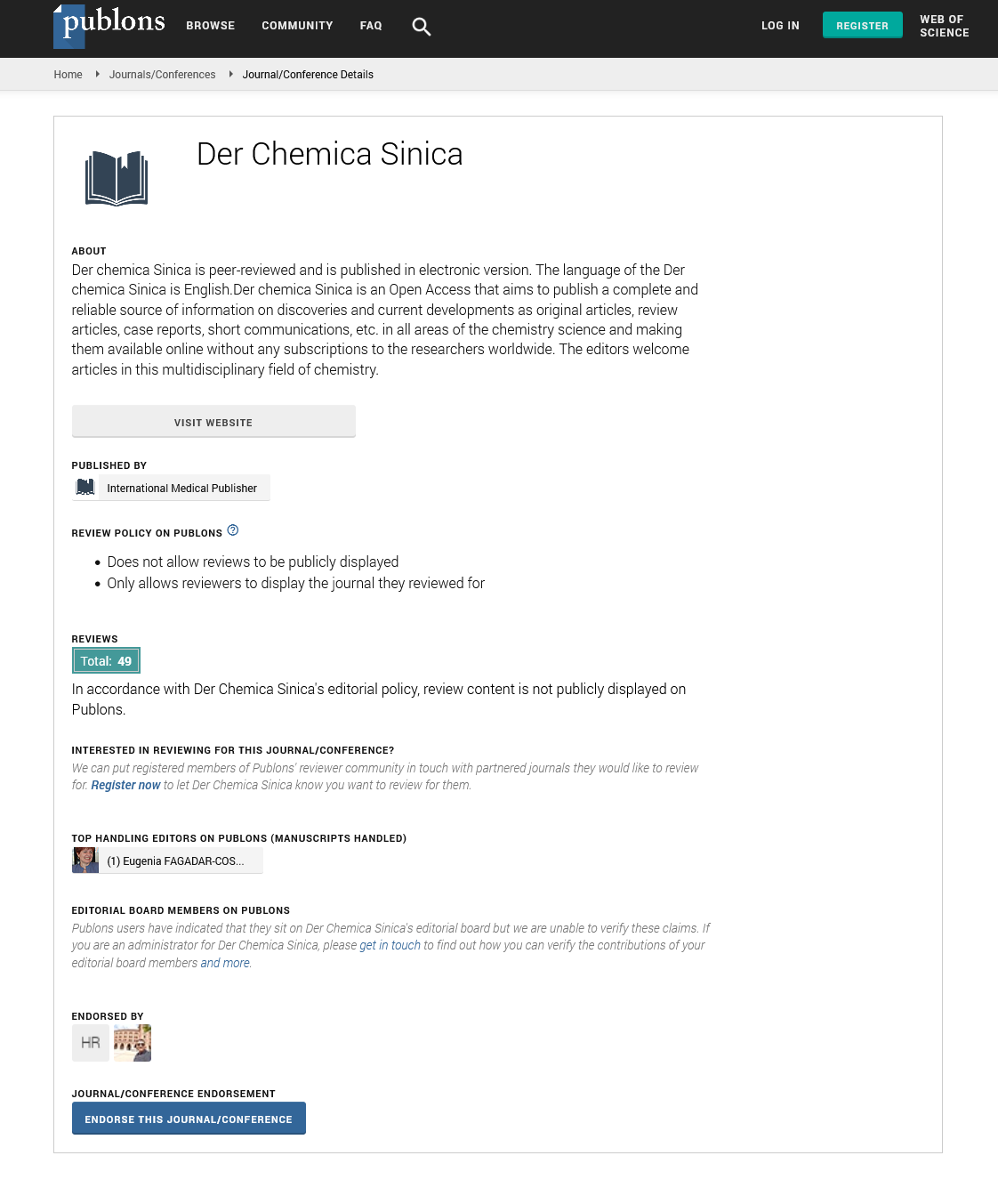ISSN : 0976-8505
Der Chemica Sinica
Abstract
Suitability evaluation of groundwater for irrigation purposes: A study on tea garden belts villages of Golaghat District, Assam, India
A study was carried out to assess the quality of underground water for irrigation purposes in the tea garden belts of Golaghat district of Assam, India. A total of 30 groundwater samples were analyzed for pH, Electrical Conductivity (EC), Total Dissolved Solids (TDS), Chloride Fluoride, Hydrogen Carbonate, Nitrate–Nitrogen, Sulphate, Phosphate, Sodium, Potassium, Calcium, Magnesium, Boron and Iron. In addition to assess the water quality for irrigation purposes sodium adsorption ratio (SAR), soluble sodium percentage (SSP) and residual sodium carbonate (RSC) were calculated using standard equations. The concentration of Ca, Mg, Na, K, Cl-, F-, NO3-N, SO4 2-, HCO3 - and Fe in water samples were within the permissible range of drinking purposes. The calculated kurtosis values for Ca, Mg, Na, K, B, Fe, Cl-, F-, NO3 - -N, SO4 2-, HCO3 - and PO4 3- are less than 3 (β2<3). For pH kurtosis was found in normal distribution curve (β2=3) whereas for EC the curve is mesokurtik (β2 >3). The SAR value ranges from 1.02 to 24.14. Out of 30 sampling stations 26 station’s SAR are found excellent for irrigation (SAR<10), two station falls in good class (SAR=10-18) and other two falls in medium class. The study revealed that more than 50% water samples are not suitable for irrigation purposes (RSC > 1.25). The range of SSP% was recorded 6.78-70.07. SSP% for ten stations found in excellent category (SSP% <20), fifteen stations in good category (SSP%= 20-40) and others are medium to vary bad category
Author(s): Bhupen Kumar Baruah, 1 Bhanita Das, 2 Ansarul Haque, 3 Chitrani Medhi1 and Abani Kumar Misra1
Abstract | PDF
Share This Article
Google Scholar citation report
Citations : 6019
Der Chemica Sinica received 6019 citations as per Google Scholar report
Der Chemica Sinica peer review process verified at publons
Abstracted/Indexed in
- Google Scholar
- Open J Gate
- Genamics JournalSeek
- China National Knowledge Infrastructure (CNKI)
- Directory of Research Journal Indexing (DRJI)
- Publons
- MIAR
- International Committee of Medical Journal Editors (ICMJE)
- Serials Union Catalogue (SUNCAT)
- Geneva Foundation for Medical Education and Research
- Secret Search Engine Labs
- Euro Pub
- CAS (Chemical Abstracting Services)
- University of Barcelona
Open Access Journals
- Aquaculture & Veterinary Science
- Chemistry & Chemical Sciences
- Clinical Sciences
- Engineering
- General Science
- Genetics & Molecular Biology
- Health Care & Nursing
- Immunology & Microbiology
- Materials Science
- Mathematics & Physics
- Medical Sciences
- Neurology & Psychiatry
- Oncology & Cancer Science
- Pharmaceutical Sciences
